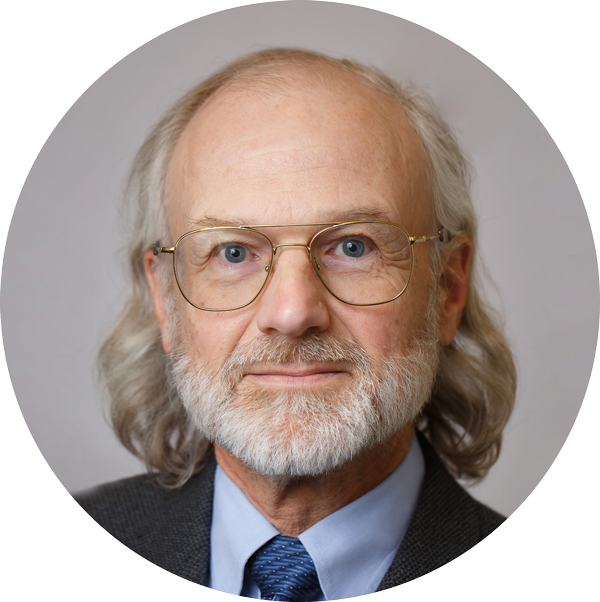
Chances are—and no judgment!—you don’t know a whole lot about blockchain.
 But, says professor Hank Korth (pictured), you probably know more about it than many of the lawmakers crafting policies around the digital ledger system.
But, says professor Hank Korth (pictured), you probably know more about it than many of the lawmakers crafting policies around the digital ledger system.
“Our society lacks people who understand what blockchain is and how it works,” says Korth, who is a faculty member in the Department of Computer Science and Engineering (CSE). “And this is technology with a lot of current and potential implications for enterprise, regulation, digital currency, and how businesses relate to each other. So we need people who can go into government, who can make business decisions, who can explain to the general public what blockchain is, the impact it’s having already, and the impact that it’s going to have in the future.”
Filling that need is the ultimate goal of Lehigh Blockchain, an interdisciplinary team that spans the fields of computer science and business through blockchain research, education, and applications. Korth says the initiative began in 2018 when a couple of undergraduates asked for a course on the topic. Blockchain is a digital ledger of transactions that allows users to securely deal with one another directly, rather than through a third party like a bank or government institution, and is the means by which cryptocurrency is exchanged.
Since its first class debuted in Spring 2018, Lehigh Blockchain has grown to include three undergraduate and three graduate courses; research projects focused on issues in the construction of blockchain systems and their applications; projects affiliated with companies including Algorand, ChainBytes, MacGuyver Tech, and Oracle; and research within the Scalable Systems and Software (SSS) lab.
The courses reflect both the need to approach this disruptive technology with an interdisciplinary mindset and the partnership between the Rossin College and Lehigh’s College of Business, which has created its own Blockchain Lab (with Korth serving as director) within its Center for Financial Services. The classes span computer science, business, financial engineering, and project-focused courses. And very often, they’re very full.
“We’re probably talking about 120 students a year that we’re interacting with, and they’re largely undergraduate and master’s students, because the opportunity cost for doing a PhD in blockchain is ridiculous,” says Korth. “The job offers are lucrative. There’s just so much excitement in the field that to commit to five or six years for a PhD is a tough decision to make.”
Those offers can range from $150,000 to $180,000 for students who are just 22 or 23 years old, says Roberto Palmieri, an associate professor of computer science and engineering and co-leader of the SSS Research Group, which collaborates with Lehigh Blockchain.
“They graduate with skills that are really hard to find in the market because of the connection required between business, computer science, and systems concepts,” says Palmieri. “They have this very unique expertise, and so they’re getting these outstanding jobs with the highest pay around. And these students are going on to lead what industry, startups, and companies are doing next in the blockchain horizon.”
Essential to building those skills and that expertise are the range of research opportunities available through Lehigh Blockchain. One of those projects focuses on zero knowledge proofs.
“These proofs keep information that you want to keep private, private,” says Korth. “They’re easy to verify, but extremely computationally hard to generate. One way to deal with that difficulty is to use modern parallel architecture. So we have a business problem, which is blockchain. Our SSS Research Group does parallel and distributed computing. These problems are numerical algorithms, and we have a numerical person in SSS, [CSE assistant professor] Arielle Carr. It’s a project that really reflects the synergy across both the engineering and business colleges and within our own lab here in computer science.”
And that synergy plus human capital is a rare commodity, says Palmieri.
“Generally speaking, it’s hard to assemble a team that understands all the different aspects of a single technology that are needed for that technology to work,” he says. “Our ability to do that has created this very unique time that we’re at right now with Lehigh Blockchain.”
In fact, he says, their work on zero knowledge has attracted the attention of some very big players in the community. Google recently invited Lehigh Blockchain to give a talk on the subject for one of the company’s internal seminars.
Korth adds that the inventor of one of the landmark algorithms in the zero knowledge space recently hired one of Lehigh Blockchain’s master’s students. Another student was hired by a digital currency startup funded by former Google CEO Eric Schmidt.
“People who are really significant folks in this space are recognizing that we’re producing some very good students and doing a lot of good work,” says Korth.
That good work will soon extend to doing good as well. One proposed Lehigh Blockchain project involves using the technology to prove the “fair” in fair-trade coffee. Essentially tracking the arc of a bag’s creation to ensure that, indeed, the workers were fairly paid.
“Our business partners are talking to countries across Central and South America, and this could have a phenomenal impact,” says Korth.
It’s an impact that might not be fully appreciated yet by most. But both Korth and Palmieri say that blockchain represents a fundamental transformation in how information is exchanged. It eliminates traditional authority figures—the bank, the government, the audit firm—and allows users to put their trust in a decentralized source of truth. And it will impact fields and professionals within those fields who don’t even realize it yet.
“One of the research projects we have is with a professor in the Department of Accounting, and I jokingly say, if we succeed, we’ll put most accountants on the dole,” says Korth. “Because blockchain technology can take over a lot of the tasks that are really laborious now and actually do them better.”
Maxim Vezenov ’21 ’22G is now contributing to this impact. His initial interest in cryptocurrency as a first-year student eventually led him to Lehigh Blockchain. He participated in one of the initiative’s capstone projects—creating an app within blockchain that verifies letters of reference—and after presenting the project to an audience that included industry leaders, was offered a summer position in a startup.
The capstone also ignited his interest in research, which led him to create—along with a few of his peers—a student research group (run by Korth within the SSS lab) that now includes up to 20 students pursuing rigorous work in computer science and mathematics with applications in business, finance, accounting, and the supply chain.
Driven to learn more, Vezenov went on to complete a master’s degree working with Korth examining how to compute zero knowledge proofs more efficiently. Before he’d even graduated, he’d landed a job at a small startup using zero knowledge technology to scale Ethereum, a blockchain platform second only to Bitcoin.
“There is so much value in these Lehigh Blockchain courses, the capstone projects are a great chance to really dive into the technology, and the research group is the best place to learn alongside other people who are as into the technology as you are,” says Vezenov. “There’s no question it all contributed to where I’m at now.”
Main photo courtesy of istock/Sashkinw
